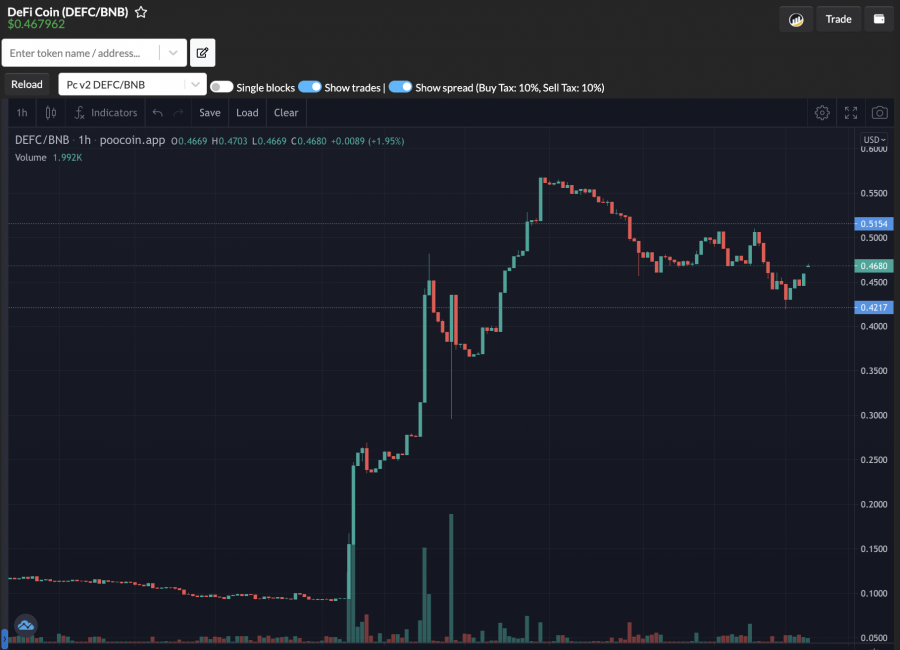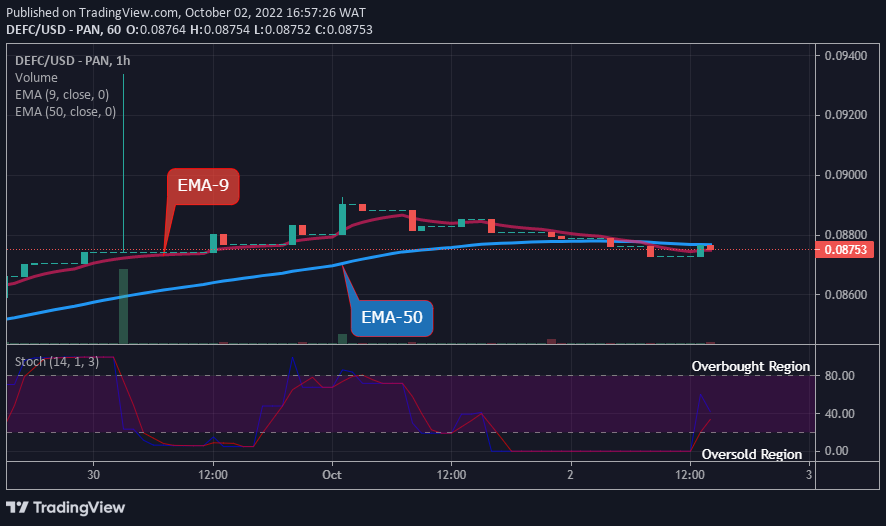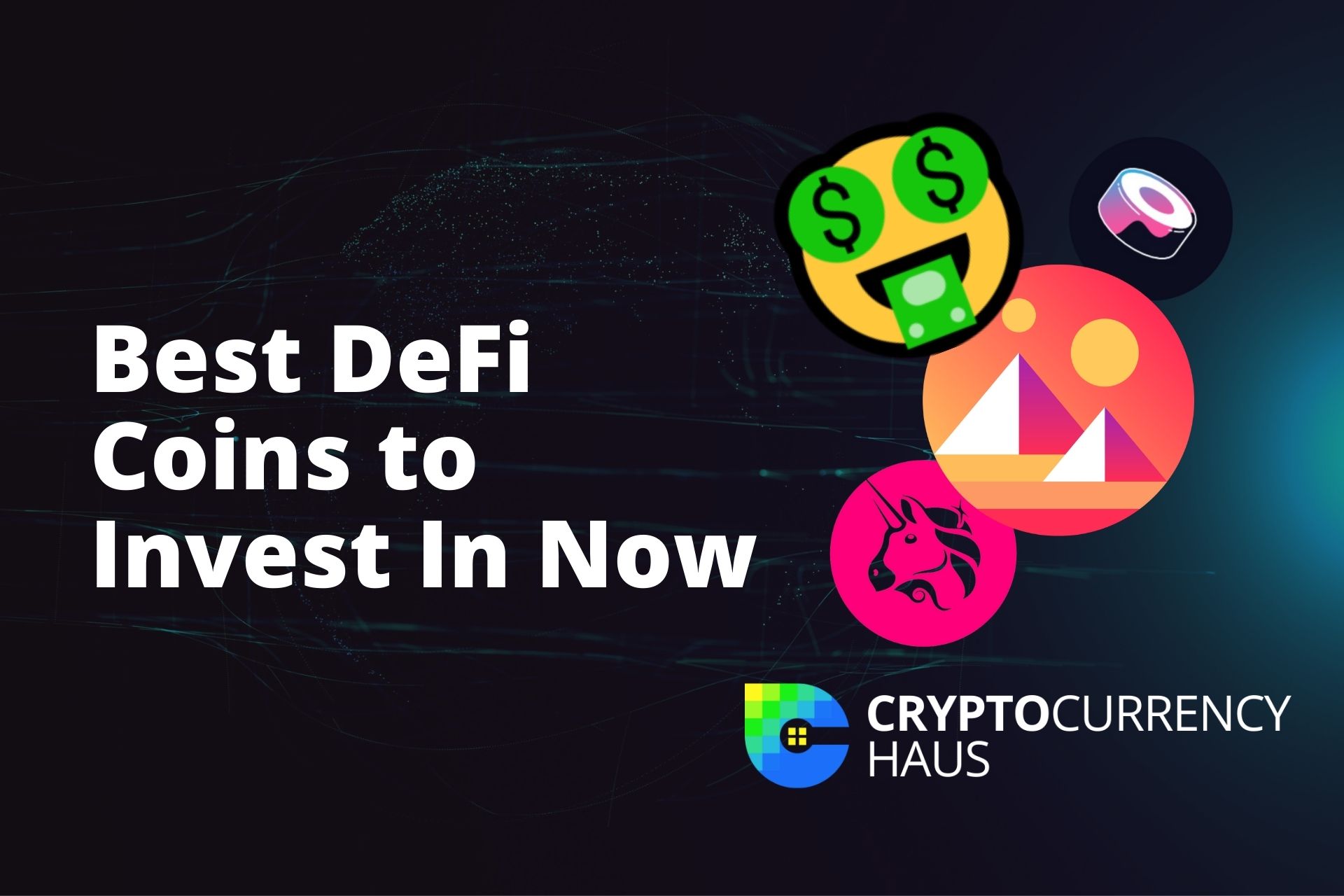DeFi Coin Price Trends

Defi coin price - DeFi coins have exhibited significant price volatility since their inception. The market capitalization of DeFi coins has also fluctuated, reflecting the evolving landscape of the DeFi ecosystem.
Factors Influencing DeFi Coin Prices
- Market sentiment: Positive sentiment towards DeFi and blockchain technology has generally driven DeFi coin prices higher, while negative sentiment has led to price declines.
- Regulatory developments: Regulatory clarity and favorable policies can boost DeFi coin prices, while regulatory uncertainty or negative actions can have a negative impact.
- Adoption and usage: Increased adoption and usage of DeFi protocols and applications can drive demand for DeFi coins, leading to price increases.
DeFi Coin Use Cases
DeFi coins, or decentralized finance coins, are digital assets that enable users to interact with decentralized financial applications. They provide a wide range of use cases, including:
Decentralized Finance (DeFi)
DeFi coins facilitate decentralized lending, borrowing, and trading. They eliminate the need for intermediaries, reducing transaction costs and increasing transparency. Examples include Uniswap, a decentralized exchange that allows users to trade cryptocurrencies directly with each other, and Aave, a decentralized lending platform that enables users to borrow and lend cryptocurrencies.
Staking
Staking involves holding DeFi coins in a cryptocurrency wallet to earn rewards. By participating in staking, users contribute to the security and stability of the blockchain network and earn passive income. Some DeFi coins offer high staking rewards, making them attractive investments for long-term holders.
Governance
DeFi coins often have governance tokens that allow holders to participate in the decision-making process of the underlying platform or protocol. Holders can vote on proposals to determine the future direction of the project, allocate funds, and make other important decisions.
Potential Impact on Traditional Financial Systems, Defi coin price
DeFi coins have the potential to disrupt traditional financial systems by offering more accessible, transparent, and cost-effective financial services. They could reduce the reliance on centralized institutions, increase financial inclusion, and promote financial innovation.
Find out about how beincrypto can deliver the best answers for your issues.
DeFi Coin Market Analysis

The DeFi coin market has witnessed a significant surge in growth in recent years, driven by the increasing adoption of decentralized finance (DeFi) protocols and applications. DeFi coins, which are native tokens of DeFi platforms, offer various utilities within the DeFi ecosystem, such as governance rights, staking rewards, and access to exclusive features.
To provide a comprehensive overview of the DeFi coin market, we have compiled a table comparing the top DeFi coins based on market capitalization, price, and trading volume. This table highlights the key players in the market and provides insights into their relative dominance and market share.
Top DeFi Coins by Market Capitalization
| Rank | Coin | Market Cap | Price | Trading Volume |
|---|---|---|---|---|
| 1 | Uniswap (UNI) | $10.5 billion | $7.85 | $2.5 billion |
| 2 | Chainlink (LINK) | $7.5 billion | $14.20 | $1.8 billion |
| 3 | Aave (AAVE) | $4.5 billion | $102.45 | $1.2 billion |
| 4 | Maker (MKR) | $2.5 billion | $1,220.00 | $800 million |
| 5 | Compound (COMP) | $2.3 billion | $112.00 | $700 million |
As evident from the table, Uniswap (UNI) currently holds the top position in terms of market capitalization, indicating its dominance in the DeFi coin market. Other notable players include Chainlink (LINK), Aave (AAVE), Maker (MKR), and Compound (COMP), each with significant market share and a strong presence in the DeFi ecosystem.
Further details about metaforce crypto is accessible to provide you additional insights.
It is important to note that the DeFi coin market is highly dynamic, with new projects and coins emerging regularly. As the DeFi ecosystem continues to evolve and expand, we can expect to see changes in the competitive landscape and the emergence of new players in the market.
DeFi Coin Investment Strategies
The DeFi coin market offers various investment opportunities, each with its own risk and reward profile. Understanding these strategies is crucial for making informed decisions.
Investment strategies for DeFi coins encompass a range of approaches, including long-term holding, yield farming, and arbitrage trading. These strategies vary in their level of risk and potential returns.
Long-Term Holding
Long-term holding involves purchasing DeFi coins and holding them for an extended period, typically with the expectation of price appreciation. This strategy is suitable for investors with a high risk tolerance and a long-term investment horizon.
Yield Farming
Yield farming involves lending or staking DeFi coins in liquidity pools or lending protocols to earn rewards. The rewards can be in the form of interest payments, additional DeFi coins, or other cryptocurrencies.
Arbitrage Trading
Arbitrage trading involves taking advantage of price discrepancies between different DeFi coin exchanges. By buying DeFi coins on one exchange and selling them on another at a higher price, traders can profit from the price difference.
Risk Management and Diversification
Effective DeFi coin investment involves prudent risk management and diversification. Diversifying investments across different DeFi coins and investment strategies can help mitigate risks.
Potential Risks and Rewards
Investing in DeFi coins carries potential risks and rewards. The market is highly volatile, and prices can fluctuate significantly. Additionally, DeFi coins are susceptible to security risks, such as hacking and scams.
You also can understand valuable knowledge by exploring binance exchange.
DeFi Coin Technology and Development: Defi Coin Price
DeFi coins are built on the foundation of blockchain technology and leverage smart contracts to facilitate decentralized financial transactions. The underlying protocols, such as Ethereum, Binance Smart Chain, and Polygon, provide a secure and transparent platform for DeFi coin operations.Protocol Advancements
DeFi coin development is continuously evolving, with advancements in scalability, interoperability, and security. Layer-2 solutions like Polygon and Optimism enable faster and cheaper transactions, while cross-chain bridges facilitate asset transfers between different blockchains.Challenges and Opportunities
Despite the rapid growth, DeFi coin technology faces challenges such as regulatory uncertainty, security risks, and scalability limitations. However, these challenges also present opportunities for innovation and improvement.DeFi Coin Regulations and Compliance

The regulatory landscape for DeFi coins varies across different jurisdictions. Some jurisdictions have taken a proactive approach to regulating DeFi coins, while others have adopted a more cautious approach. The potential impact of regulations on DeFi coin prices and adoption is still uncertain, but it is likely that regulations will play a significant role in shaping the future of DeFi coins.
Compliance Requirements for DeFi Coin Issuers and Investors
DeFi coin issuers and investors should be aware of the regulatory requirements in their jurisdiction. Failure to comply with these requirements could result in legal penalties.
- For DeFi coin issuers: Issuers of DeFi coins should be aware of the securities laws in their jurisdiction. In some jurisdictions, DeFi coins may be considered securities, and issuers may be required to register with the relevant regulatory authority.
- For DeFi coin investors: Investors in DeFi coins should be aware of the risks associated with investing in these assets. DeFi coins are a new and unregulated asset class, and there is no guarantee that they will increase in value.
